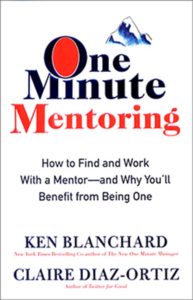Since my early teens, I have kept a regular journal. And even if I don’t remember to write every day, I do on most. My father, a journalist, set an incredible example, to the extent that he regularly pulls out past journals on holidays and birthdays to remind us of all that happened some years back. On my recent birthday, for example, he wrote that on this day in 1984, my preschool teacher had told him definitively about my manner of being in the schoolyard, “She plays hard.” A prescient statement, of course.
But journaling isn’t the only writing I do. I also do something I’ve never quite had a good name for (although I’ve at times called it free-writing). It’s the practice of writing out your problem, and writing your way to a solution. Recently, while reading a daily section of Simple Abundance: A Daybook of Comfort and Joy by Sarah Ban Breathnach, I came across a phrase that I think best describes this kind of writing, and why it works so well.
As Sarah explains,
One day, desperate to quiet the voice in my head, I took a spiral notebook and began having a conversation with myself on the paper. Everything I was worried about just spilled out in a rapid stream of consciousness. What I was doing was not so much recording the events in my life as much as eliminating the mental minutiae that was depleting my creative energy and driving me crazy. I was then able to let go and get on with my day. “Groan and forget it,” the writer Jessamyn West advised.
As she says, and as I can attest to, it’s not just for worries. It’s for figuring out life as well.
Sometimes, when I have a particularly thorny issue to resolve, I’ll write two pages in the morning and come back in the evening to see if there isn’t an answer that’s forthcoming. Very frequently, there is.
She calls this ritual the daily dialogue, “because you are really conversing with someone much wiser and saner as you write: your authentic self.”
I love this word, and think it bears more meaning that merely free-writing does, also adding in the motivation to do it on a daily basis, and the idea that it really is something of a dialogue: a dialogue with the part of you that knows the answer. This week, I’ve been deep in the heart of such writing, figuring out the best path for a thorny thing I’m trying to wrap my head around. And, when I wake up after another semi-sleepless night, it’s been the daily dialogue that has been saving me.
In the matter of a twenty minute session of pen on page, it shows a path towards productivity and away from worry.
Highly, highly recommended. Let me know if you try your hand.





Hmmm. Thanks for putting a name and definition around what I’ve just come to realize. Some friends and I are co-writing a blog. Through my weekly contributions, I’ve noticed that I am working through an issue I have and creating the next steps as I write. It just became apparent to me last week that this was happening.
That’s awesome — and yes, it just becomes clear over time essentially. Very cool.
Me too, and it helps to use a timer. Funny what bubbles up sometimes, but I have to be still and get quiet emotionally for it to work well. Good to have a name for it!
Yes! Love the timer;)
A question that comes from my own experience and from years of teaching school – is there a difference between actually handwriting/printing your thoughts and keyboarding them? I’d be interested in your thoughts and those of other readers.